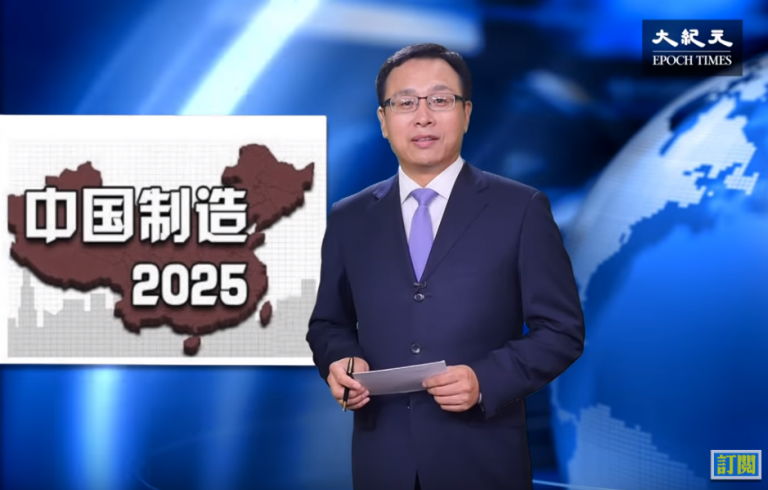Since 2015, the Chinese government has been promoting the slogan “Made in China 2025,” which refers to Beijing’s goal of transforming China from a producer of cheap goods to a competitive powerhouse of cutting-edge high-tech industry.
But in the last few months, there’s been a shift in how Chinese state-controlled media have been covering Made in China 2025: Mentions of the slogan have dropped off drastically.
This shift coincides with the U.S. government announcing greater tariffs and other trade regulations in order to counter China’s unfair economic practices.
Made in China 2025 clashes with President Donald Trump’s own goals to return the United States to the status of manufacturing superpower that it enjoyed in the mid-20th century.
On June 15, President Trump announced a 25 percent tariff on $US50 billion dollars worth of Chinese imports, mostly involving tech products that feature in Made in China 2025, and the U.S. government is considering further tariffs as negotiations continue between the two countries’ top leaders.

Since 2015, the Chinese government has been promoting the slogan ‘Made in China 2025,’ which refers to Beijing’s goal of transforming China from a producer of cheap goods to a competitive powerhouse of cutting-edge high-tech industry. (Image: pixabay / CC0 1.0)
Success
You are now signed up for our newsletter
Success
Check your email to complete sign up
Previously, the Trump administration had ordered a 7-year business ban on major state-run Chinese tech company ZTE for selling U.S.-made electronics to Iran and North Korea in violation of international sanctions.
The fate of ZTE is uncertain as the U.S. government discusses the ban and other penalties. Huawei, another Chinese tech giant with strong links to the Chinese Communist Party (CCP), has come under scrutiny for the potential cybersecurity threats it poses.
Toning down the propaganda
Recent news indicates that Beijing fears the strong economic measures of the U.S. government.
Even though China’s GDP is comparable to that of the United State, the world’s most populous nation has more to lose in an all-out trade war. The Communist Party owes much of its political popularity to continuously rising prosperity, so an economic depression would create widespread unrest and threaten the CCP’s political power.
And even though China has made impressive progress in technology and industry, it still lags behind countries like the United States and Japan. This is demonstrated by Chinese companies commonly relying on appropriating foreign intellectual property.
Reuters quoted a Chinese diplomat as saying that China was “starting to adjust to the blowback” from the U.S. government after Beijing pushed Made in China 2025 too aggressively.

Even though China’s GDP is comparable to that of the United State, the world’s most populous nation has more to lose in an all-out trade war. (Image: pixabay / CC0 1.0)
In the first five months of 2018, China’s state-run Xinhua mentioned Made in China 2025 over 140 times. But the term has not appeared since June 5, Reuters reported. Some Chinese journalists also told Reuters that they had received instructions not to mention Made in China 2025.
On June 25, a document that was allegedly leaked from the CCP authorities circulated on social media briefly before being censored. According to Taiwan’s Central News Agency, the memo contained an eight-point directive to media organizations, telling them to tone down their focus on Made in China 2025 and avoid “vulgar” remarks about President Trump.
Referring to Made in China 2025, the anonymous diplomat who spoke to Reuters said that the Chinese government “won’t stop doing it. The way they talk about it is changing.”
Follow us on Twitter or subscribe to our weekly email














